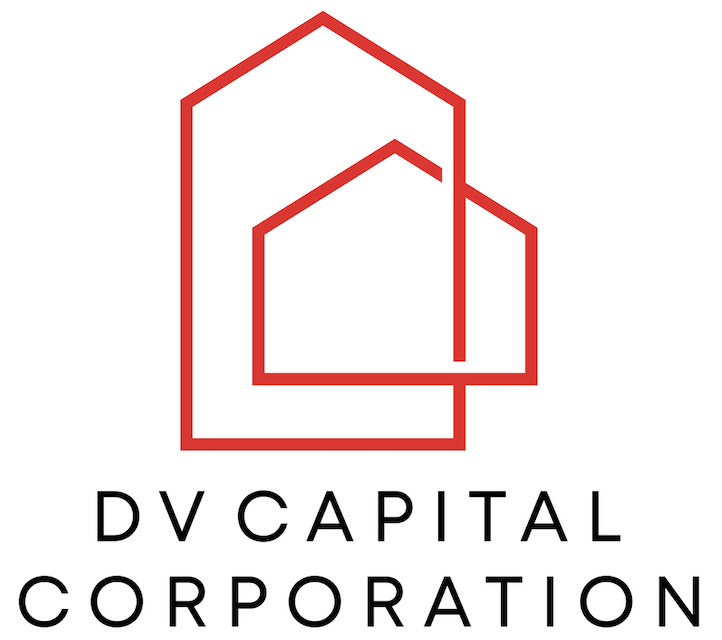What is a Private Mortgage?
What is a Private Mortgage?
A private mortgage is a mortgage that is not provided through a traditional lender or financial institution. Private mortgage lenders are usually either individuals, mortgage brokerages with in-house funds, mortgage brokerages that represent investors, or a mortgage investment entity, be it a Mortgage Investment Corporation, a Limited Partnership, or a Mutual Trust Fund. Another difference is that unlike banks and trust companies, private mortgage lenders underwriting requirements are not federally regulated by the Office of the Superintendent of Financial Institutions (OSFI). This enables more lenient underwriting which in turn provides mortgage solutions that are otherwise unavailable in the primary mortgage market. There are a plethora of reasons why you might not qualify for traditional mortgage financing and require alternative solutions.
Property Type
Depending on the property type, location, use, and occupancy status, you might have trouble checking all the boxes. Yes, your mortgage lender will review your income, credit, and net worth to determine your capacity. Last but not least, your mortgage lender will review the real estate itself. After all, it’s their security at the end of the day. A mortgage lender needs to satisfy themselves with their ability to retrieve their money. Your mortgage lender will usually either be paid out by another mortgage lender or from the sale of the property.
If you default on your mortgage, your lender will want to be able to dispose of the property promptly. An unmarketable property not gaining attention from purchasers can be proven to be devastating to the mortgage lender. The inability to sell the real estate ties up the principal investment. Also, the mortgage balances will continue to accrue, as will the change of potential mortgage or property tax arrears. In summary, your mortgage lender wants to extend their mortgage capital and secure it against a marketable property. If the property is being used as a rooming house, you can anticipate your mortgage traditional lender taking a pass. If your property is only accessible during the summer by water access, you might expect a reduced loan amount or the case of a purchase, a greater downpayment. There are many possible roadblocks.
Property Condition
The reality is that not many people live in a sparkling and shiny home. We have pets, children, and quite frankly, sometimes available cash is scarce, and we put off home improvements. Although you might have grown comfortable with the water stain on your kitchen ceiling, or feel that the crayon markings along the walls add a touch of modernism, your mortgage lender has a different position.
Any type of deferred maintenance or potential damage is a red flag for a mortgage lender. This goes back to the most recent point concerning wanting to ensure that the property is as marketable as possible. Don’t get us wrong, your home does not need to pass a military cleaning test, however, any deferred maintenance over $2000 might be troublesome. Your mortgage lender might ask that you take care of the work from your pocket, before the mortgage advance. If you are lucky, the lender might hold back a portion of the mortgage proceeds and require that the work is completed during the term. The most frustrating part to us and our clients is when there is a clear fixable solution, but the lender would still rather avoid any potential issue altogether.
Credit
Yes, we said it! You likely know that mortgage lenders have minimum credit score requirements. Is that it? NO! You might very well be able to show the required minimum credit score, however, the guts of your credit may be insufficient. We have seen an 18-year-olds Equifax report showing that one credit card has been reporting for a few months with a $2000 limit, with the same credit score, as someone with multiple credit cards, loans, and lines of credit. The difference? Thin versus thick credit. While the scores can be similar, the proof is in the pudding. The mortgage lender will likely be faster to approve the individual who has demonstrated many years of satisfactory repayment of multiple credit facilities as opposed to the individual with 1 credit facility, reporting for a short period.
Newcomers to Canada face an issue when seeking a credit facility without any established credit. In this case, we will refer the client to obtain a secured credit card to begin the credit establishment process. Late payments, high balance-to-limit ratios, unpaid judgements, bad debt that has been sold to a collection agency, previously discharged or active bankruptcies and consumer proposals are also potential pitfalls from obtaining traditional financing.
Income and Employment
Unless you are a government worker for the past 30 years, with an untouchable senior position that comes with a bulletproof salary, you might want to take a seat for this. Your mortgage lender wants, rather needs, to have a thorough understanding of your employment and income status.
If you are self-employed, are you operating at a sole proprietor, are you incorporated, or are you in a partnership? Do you draw yourself a salary, or do you take dividends? If you are working in an hourly position, have you been in this position for at least 2 years, if not, have you transferred from a similar industry? Are your hours guaranteed? If not, get ready to present your previous 2-year income average. Are you on a probation period? Do you work for a family company? There are many potential road bumps, not to say impossible to overcome, but just another reality of the many nuances and difficulties surrounding obtaining traditional financing.
Mortgage Stress Test
We know that you have heard all about it, but let’s look into it a bit more. Federally regulated mortgage lenders must apply what is known as a stress-test to borrowers looking to qualify for a residential mortgage.
This is a process that essentially puts the borrowers’ income to test in the event interest rates rise. Although your traditional lender is offering you what is known as a contract rate, say 3%, for an insured mortgage (down payment between 5% – 19.99%) you must qualify using the Bank of Canada Benchmark Rate which is currently 4.79% at the time this article is written. Say you can apply a down payment of 20% or greater, you will need to stress-test at the greater of the contract rate (3%) + 2% (=5%), and the Benchmark Rate (4.79%) – in this case, although you would make payments on 3%, you must show that your debt service ratios still conform to institutional guidelines based on a 5% interest rate.
Needless to say, this stress test will take the average borrower looking to qualify for a mortgage back a few steps back. Alternatively, will restrict the amount of mortgage they qualify for, therefore reducing the purchase price or amount they can borrow in the event of a refinance.
Timing
You get the phone call from your realtor that your dream home has just literally surfaced on MLS and they’ve negotiated on your behalf a 3-day closing. Safe to assume that your bank mortgage representative might take 3 days to phone you back. On the other hand, if all are equal, we will fund your purchase in as little as 3 days. Traditional lenders are not necessarily the quickest source of capital that exists. It’s just not how they are set-up. It takes days for a bank branch to respond to mortgage information or discharge request, good luck with a rush financing requirement. If you need to close hard and fast, a private lender will take care of you due to the reduced red-tape and bureaucracy, as well as the boutique nature of private lending firms.
Special Projects
Your bank may opt to pass on helping you finance a special project. A mould infested house, a commercial property with environmental concerns, a fix-n-flip project, a remediated cannabis grow-op, an extensive renovation or construction job, might have your bank end the meeting real fast. A private lender on the other hand can be very creative and flexible with their underwriting. Most importantly, they aren’t handcuffed to federally prescribed underwriting guidelines that most restrictive on any non-cookie-cutter type project. Private lenders apply a common-sense approach that will bridge you and your plans to reality.
Acceptable Property Types for Private Mortgage Financing
- Residential
- Commercial
- Mixed-Use
- Industrial
- Factory
- Warehouse
- Manufacturing Plant
- Place of Worship (ie: Church & Temple)
- Retail Plaza
- Hotel
- Motel
- Inn
- Parking Lot
- Private School
- Car Dealership
- Banquet Hall
- Grocery Store
- Gas Station
- Golf Course
- Working Farm
- Hobby Farm
- Retirement & Nursing Home
- Development Land
- Apartment Building
- Recreational Resort Property
- Cinema
- & more.
Your bank may opt to pass on helping you finance a special project. A mould infested house, a commercial property with environmental concerns, a fix-n-flip project, a remediated cannabis grow-up, an extensive renovation or construction job, might have your bank end the meeting real fast. A private lender on the other hand can be very creative and flexible with their underwriting. Most importantly, they aren’t handcuffed to federally prescribed underwriting guidelines that most restrictive on any non-cookie-cutter type project. Private lenders apply a common-sense approach that will bridge you and your plans to reality.
Characteristics of a Private Mortgage
- No stress-test
- Lenient income requirements
- You may use stated income in some cases
- Your self-employed income is accepted if you are incorporated, in a partnership, or operating as a sole proprietor
- Student housing is eligible for mortgage financing
- Less than perfect credit and no credit is accepted
- Tolerance for elevated debt service ratios
- Closings in as little as 24- 48 hours.
- Same day approvals.
- Active or discharges bankruptcies or consumer proposals are accepted
- Used to cure existing mortgage arrears, property tax arrears, or income tax arrears.
- Used to STOP a Power of Sale and keep you in your home.
- Approvals for property located in urban or remote locations.
- Renovate or improve a property with very flexible guidelines.
- Approvals for remediated grow-ups.
- Flexible term lengths.
- Fully open mortgages and flexible prepayment penalties.
- Prepaid interest or an interest reserve during the term.
- Approvals to fund the purchase of a rent-to-own.
- Many more reasons.
Although the cost of obtaining and borrowing private capital is costlier than traditional avenues, it is of paramount importance to remember that a private mortgage is a band-aid solution. Also, not only a bandaid, it enables solutions that are just plain and simply not available from your bank. We’ve worked with clients who have made a substantial profit from renovation and construction loans. As well as clients who consolidated high-interest credit card debt into one manageable payment. In addition, clients save their homes while facing a power of sale. We work with real estate investors who can rely on our speed to be opportunistic when an undervalued property hits the market.
There are many reasons and benefits as to why a shot-term private mortgage can be helpful when traditional financing isn’t an immediate option.
DV Capital Corporation
FSRA Brokerage License:. 13186
Local: 416-839-5874
Toll-Free: 1-866-839-5874
Email: info@dvcapitalcorp.com
Website: www.dvcapitalcorp.com
Click here to apply anytime, anywhere.

